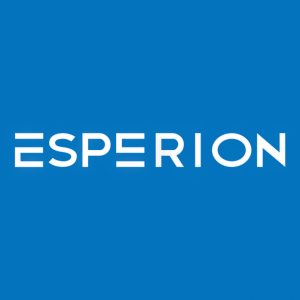Esperion Announces Inducement Grants Under NASDAQ Listing Rule 5635(c)(4)
On August 19, 2020, Esperion (NASDAQ: ESPR) granted 25,566 restricted stock units (RSUs) to 28 new employees under its 2017 Inducement Equity Incentive Plan. This plan is designed to attract new talent by granting equity awards to individuals not previously associated with the company. The RSUs vest over a four-year period, with 25% vesting on the one-year anniversary and the remaining 75% vesting quarterly. Esperion focuses on developing oral medications to lower LDL-C levels to combat cardiovascular disease, which affects over 96 million adults in the U.S.
- Granting of 25,566 RSUs may attract and retain talent.
- Focus on LDL-C lowering medicines addresses a significant health issue with a large potential market.
- Potential dilution of existing shares due to RSU grants.
- Continued dependency on successful clinical outcomes and market acceptance of new products.
Insights
Analyzing...
ANN ARBOR, Mich., Aug. 21, 2020 (GLOBE NEWSWIRE) -- Esperion (NASDAQ: ESPR) today announced that, on August 19, 2020, the Compensation Committee of Esperion’s Board of Directors granted 25,566 restricted stock units (RSUs) to 28 new colleagues under Esperion’s 2017 Inducement Equity Incentive Plan.
The 2017 Inducement Equity Incentive Plan is used exclusively for the grant of equity awards to individuals who were not previously an employee or non-employee director of Esperion (or following a bona fide period of non-employment), as an inducement material to such individual's entering into employment with Esperion, pursuant to Rule 5635(c)(4) of the NASDAQ Listing Rules.
Each RSU will vest as to twenty-five percent of the shares on the one-year anniversary of the recipient's start date, and will vest as to the remaining 75 percent of the shares in twelve equal quarterly installments at the end of each quarter following the anniversary, in each case, subject to each such employee's continued employment with Esperion on such vesting dates. The RSUs are subject to the terms and conditions of Esperion’s 2017 Inducement Equity Incentive Plan, and the terms and conditions of the RSU agreement covering the grant.
Esperion Therapeutics
Through scientific and clinical excellence, and a deep understanding of cholesterol biology, the experienced Lipid Management Team at Esperion is committed to developing new LDL-C lowering medicines that will make a substantial impact on reducing global cardiovascular disease, the leading cause of death around the world. For more information, please visit www.esperion.com and follow us on Twitter at www.twitter.com/EsperionInc.
Esperion Therapeutics’ Commitment to Patients with Hyperlipidemia
High levels of LDL-C can lead to a build-up of fat and cholesterol in and on artery walls (known as atherosclerosis), potentially leading to cardiovascular events, including heart attack and stroke. In the U.S., 96 million people, or more than 37 percent of the adult population, have elevated LDL-C. There are approximately 18 million people in the U.S. living with elevated levels of LDL-C despite taking maximally tolerated lipid-modifying therapy — including individuals considered statin averse — leaving them at high risk for cardiovascular events1. In the United States, more than 50 percent of atherosclerotic cardiovascular disease (ASCVD) patients and heterozygous familial hypercholesterolemia (HeFH) patients who are not able to reach their guideline recommended LDL-C levels with statins alone need less than a 40 percent reduction to reach their LDL-C threshold goal2.
Esperion's mission as the Lipid Management Company is to deliver oral, once-daily medicines that complement existing oral drugs to provide the additional LDL-C lowering that these patients need.
Forward-Looking Statements
This press release contains forward-looking statements that are made pursuant to the safe harbor provisions of the federal securities laws, including statements regarding the clinical development and commercialization plans for bempedoic acid tablet and the bempedoic acid / ezetimibe fixed dose combination tablet, including Esperion's timing, designs, plans for announcement of results regarding its CLEAR Outcomes study, timing for the review and approval of expanded indications for their effect on cardiovascular events, and Esperion's expectations for the market for medicines to lower LDL-C, including the commercial launch and market adoption of bempedoic acid tablet and the bempedoic acid / ezetimibe fixed dose combination tablet in the United States and European Union. Any express or implied statements contained in this press release that are not statements of historical fact may be deemed to be forward-looking statements. Forward-looking statements involve risks and uncertainties that could cause Esperion's actual results to differ significantly from those projected, including, without limitation, delays or failures in Esperion’s clinical development and commercialization plans, or approval of expanded indications, that existing cash resources may be used more quickly than anticipated, that Otsuka is able to successfully commercialize bempedoic acid and the bempedoic acid / ezetimibe fixed dose combination tablet, the impact of COVID-19 on our business, clinical activities and commercial development plans, and the risks detailed in Esperion's filings with the Securities and Exchange Commission. Any forward-looking statements contained in this press release speak only as of the date hereof, and Esperion disclaims any obligation or undertaking to update or revise any forward-looking statements contained in this press release, other than to the extent required by law.
References
(1) Esperion market research on file: research project interviewing 350 physicians. Esperion Therapeutics, Inc. Sept-Oct 2018.
(2) Data on file: analysis of NHANES database. Esperion Therapeutics, Inc. 2018.
Contact:
Ben Church
Esperion
734-864-6774
bchurch@esperion.com







